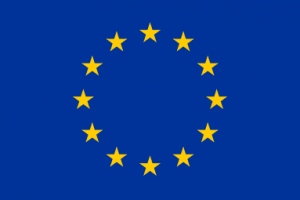Fedora’s ideas continue inspiring researchers and its results have been a fruitful foundation for further research. One of the best examples of that is the original board-game called FyouTURES, whose materials have been recently made available on Zenodo.
The game has been implemented for the first time as part of an extracurricular course for upper secondary school students called "Towards New Future Scenarios: The Role of Physics in Dealing with the Challenges of Climate Change". The course was held at the Department of Physics and Astronomy of the University of Bologna between October and November 2023, within the Piano Lauree Scientifiche program (https://www.pls.unibo.it/).
The theoretical approach behind the course was developed as part of the PhD theses of Lorenzo Miani, Francesco De Zuani Cassina and Emma D’Orto. Its aim is to show how the epistemological aspects of physics can be useful in developing the sustainability skills needed to face the challenges of climate change. In particular, the course revolves around the themes of uncertainty, complexity, decision-making, and the ability to reason about possible and desirable futures.
FyouTURES is a collaborative game where participants simulate a governmental council tasked with achieving climate goals by the year 2100. The players, working in teams, must make decisions on a wide range of factors, such as energy sources, deforestation, and taxation, all while considering various uncertainties introduced by wildcard scenarios. The game unfolds over three rounds—2030, 2050, and 2100—each corresponding to critical decision points in a future scenario. The core mechanics is based on using the simulation platform EN-ROADS: a global climate simulator that allows users to explore the impact that different policies have on several factors like energy prices, temperature, air quality, and sea level rise. Players must balance budget limitations and make strategic decisions to mitigate the impacts of climate change while pursuing sustainability goals. This setting allows participants to explore the complexities of systemic change and long-term planning in the face of uncertainties.
FyouTURES Game board
Since its inception, FyouTURES has proven to be a powerful tool for stimulating critical thinking about climate change and sustainability. The game encourages players to reflect on the relationships between environmental, economic, and societal factors, promoting systemic and critical reasoning. By engaging with different kinds of uncertainties—epistemic, aleatoric, and reflexive—players are better equipped to grasp the challenges posed by the climate crisis and develop informed perspectives on possible solutions.
The game has been played by students but also educators, who praised its potential as a teaching tool. Its ability to make abstract scientific concepts concrete, while simultaneously encouraging collaborative problem-solving, has been particularly well received. The game has also garnered attention in academic settings, where it has been presented at several research conferences. Currently, two new implementations have been already planned and discussions are underway to explore collaborations with other institutions, with the goal of expanding and refining the game for broader use.
All the game materials, including instructions, game boards, and wildcards, have been made available on Zenodo under Creative Commons license. You can explore and download them here.
We are proud to announce that FEDORA has been recognized by CORDIS (the European Commission's primary platform for EU-funded research results) as one of the standout projects that has successfully tackled the challenge of innovation in education.
A dedicated article, providing a concise overview of the project’s results, has been made available in six languages and included the "Rethinking Education through Open Schooling" Results Pack, a thematic collection tailored to specialized audiences who can further leverage these findings for broader impact.
As highlighted in the article, FEDORA has been praised for promoting a new educational paradigm specifically designed to equip today’s students with the skills, competencies, and knowledge they need to navigate the rapid and complex transformations occurring in our society and to anticipate and prepare for its future developments. This new approach aims to ensure that education systems remain responsive and adaptable in an ever-changing world, providing young people with the tools they need to thrive in both their personal and professional lives.
This recognition witnesses the spirit and dedication driving our ongoing efforts to exploit FEDORA outcomes to advance science education research. Stay tuned for updates, as we will soon share exciting developments and new progress.
The FEDORA handbook is a comprehensive and quick guide to the FEDORA project’s findings, insights, and recommendations for science educators, policymakers, and anyone interested in science education as a driver for sustainable futures. It presents a range of perspectives through our studies, recommendations, and frameworks, inviting you to apply them in various educational contexts. They are conceived as conceptual tools that can help educators imagine and design future-oriented, engaging, relevant, and meaningful science learning experiences for learners of all ages and backgrounds.
Please, download it here and help us disseminate it!: FEDORA_Handbook
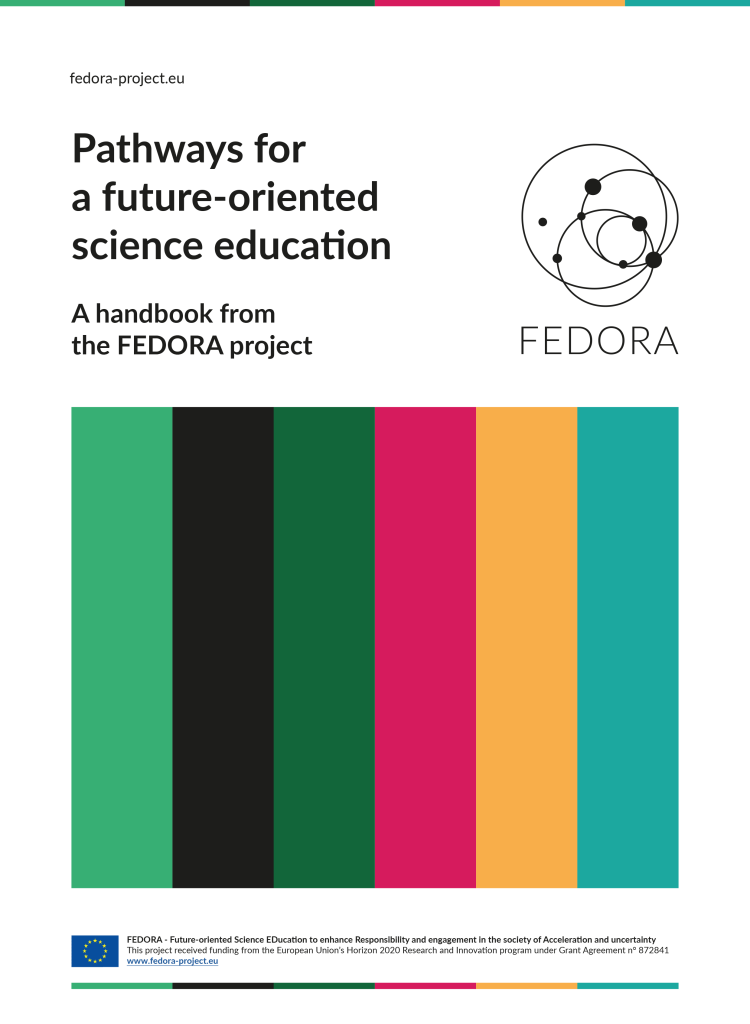
From 7 to 13 September, the third edition of the summer school ONSCI (Officina di Narrazione della SCIenza) on science's storytelling and narratives was held at the Department of Physics and Astronomy of the University of Bologna in collaboration with the European project FEDORA.
On the occasion, the local FEDORA network organized “Workshop 2”, with the objective of expanding and strengthening FEDORA’s open schooling network, by involving, above all, teachers and educators, but also doctoral and master students.
In the workshop, three interdisciplinary activities guided the participants into reflecting on the role of knowledge as a source of competences to orient us in the complexity of the contemporary world and on how it is transmitted in a moment of profound transformation. After an initial shared reflection on FEDORA themes (interdisciplinarity, new languages, and future), participants were involved in educational activities focused on the intertwining between the languages of science and arts. Specifically, the participants could choose between three kinds of activities that were based on materials and approaches elaborated by teachers of the high school "Liceo Einstein" in Rimini (Sara Moresco, Paola Fantini, Maurizio Giuseppucci). In particular, the activities proposed were KAIROS and AI Atelier, previously tested by the teachers in the school context, and Mocku for change originally designed by Emma D'Orto for her master thesis work and implemented as part of an extracurricular course. All three involved high school students in their final years.
Kairos is a module designed by Sara Moresco and Paola Fantini of the Liceo “A. Einstein”, in collaboration with the group of Physics Education, represented by Francesco De Zuani Cassina, Veronica Ilari, and Olivia Levrini. The module was developed to reflect on the concept of time and its different nuances. The activity was designed to explore the many visions of time from the perspective of physics (circular time, Newtonian absolute time, linear time) and the perspective of Greek literature (aiòn, kairòs, eniautòs, chrònos). In particular, the kinds of time emerging from physics were addressed with the Greek literature perspectives of time, within a creative writing workshop. The participants were asked to start from the inspiration of physics times and then to write monologues centered around one of the Greek times; the writing process was mentored by a creative writing expert who introduced some writing techniques. The ambition of this workshop was to educate to different visions of time starting from the physics discipline since time and its features seem fundamental pillars of the post-modern society; furthermore, the role of creative writing was to enlarge the possible languages to be used when describing scientific concepts.
The AI Atelier is a module designed by Maurizio Giuseppucci of the Liceo “A. Einstein”, together with Michela Clementi, Fabio Filippi, and Paola Fantini of the same Liceo and in collaboration with the group of STEM Education, represented by Laura Branchetti, Micheal Lodi, Eleonora Barelli, Andrea Zanellati. The module was developed to reflect on the relationship between art, creativity, and artificial intelligence (AI) in the era of generative AI. The activity was designed to explore some open questions that marked the history of computers such as “Can machines think?”, “Can artificial intelligence be creative?” and “What are the differences between humans and artificial creativity?” through the reflection on the languages of contemporary art and the potential of Open A.I. platforms like chatGPT, midjourney, and DallE. During the activity, participants, after being introduced to some examples of contemporary arts, were guided to realize final artworks with the help of the Open AI platforms paving the way to reflections on the relationship between AI and ars as well as new possible and more sustainable relationships between humans and technology.
The Mocku for Change activity was designed by Emma D’Orto, together with Giulia Tasquier, of the research group in Physics Education and was developed to explore the use of the film-making genre known as “mockumentary” to address the topic of Climate Change. Mockumentaries are fictional stories that appropriate the aesthetics of the documentary genre, using their same codes and conventions. The genre was used to help students build “fictional yet realistic” Climate Change scenarios by reflecting upon the different forms of uncertainties that we need to address both from a scientific and an artistic/narrative point of view when we imagine our future. Participants were guided to explore the concept of uncertainty by analysing the differences between fiction and non-fiction, which meant reflecting both upon “scenario” as a projection of today’s scientific knowledge on Climate Change based on Climate models and “ scenario” as paths into the future guided by imagination and specific desirable goals.
Last week, the European Science Education Research Association, ESERA, Conference brought together researchers, educators, education professionals and policymakers from across the world; more than 100 nationalities were represented and shared the latest advancements in science education.
Among the standout contributors was our EU Project FEDORA, which counted with the attendance of 12 dedicated partners. FEDORA not only participated actively but also presented research results organised a symposium, several presentations and a workshop centred on the future of science education in schools.
With the room full of participants, both the workshop and the symposium sparked questions and conversations among the attendees. You can access all presentations here:
Workshop: PreConference Workshop - ESERA conference
Symposium: "Future-Oriented Science Education to Regenerate School Systems for the Society of Acceleration and Uncertainty":
Presentation about Interdisciplinarity: 1_WP1_Interdisciplinarity_Pucetaite_Jovarauskiene
Presentation about New Languages: 2_WP2-New Languages - Conti_Troncoso
Presentation about Futures' Thinking: 3_WP3_Future thinking_Laherto
Presentation about Delphi Study: 4_WP5_Delphi study_Chan
"Time is out of joint": Reimagining time-rituals in science teaching and learning: Levrini_Panel_Time in post-pandemic, ESERA 2023_v5
Epistemological implications of different methodological approaches in textual data analysis: Caramaschi_Zanellati_Levrini_oral_presentationESERA23
Educational reconstruction to promote (physics epistemic) identity: De Zuani_SIG5 symposium
The Quantum Atelier project: Results from an interdisciplinarity experience between art and science:Satanassi_Quantum Atelier
The ESERA Conference has long been recognized as a premier platform for sharing and discussing the latest research and developments in science education. We look forward, in two years, to meeting and sharing new findings in Copenhagen at ESERA 2025!
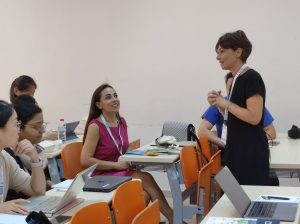
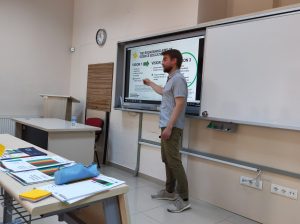
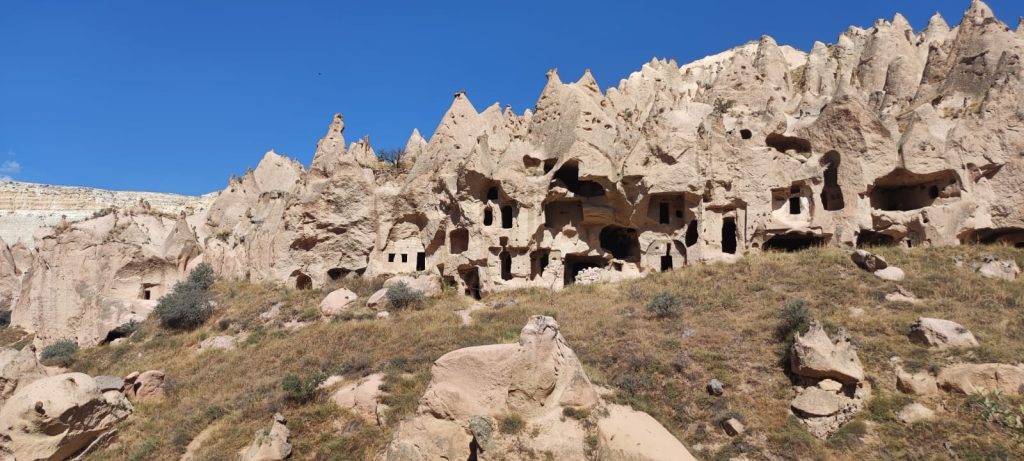
"Lenses for tomorrow", FEDORA's official podcast, is exploring our project main themes by interviewing both our project partners and some external experts. Join us to explore how to develop a future-oriented model for science education, to enable creative thinking, foresight and active hope in formal and informal environments!
In this last episode, together with Alfredo Jornet, Giulia Tasquier and Sibel Erduran we will discuss two topics that are transversal in respect to the main three research strands presented in the previous episodes. Firstly we will discover the concept of open schooling and then we will address the issue of policymakers' involvement in educational research.
Enjoy it!
The FEDORA handbook is a comprehensive and quick guide to the FEDORA project’s findings, insights, and recommendations for science educators, policymakers, and anyone interested in science education as a driver for sustainable futures. It presents a range of perspectives through our studies, recommendations, and frameworks, inviting you to apply them in various educational contexts. They are conceived as conceptual tools that can help educators imagine and design future-oriented, engaging, relevant, and meaningful science learning experiences for learners of all ages and backgrounds.
Please, download it here and help us disseminate it!: FEDORA_Handbook

"Lenses for tomorrow", FEDORA's official podcast, is exploring our project main themes by interviewing both our project partners and some external experts. Join us to explore how to develop a future-oriented model for science education, to enable creative thinking, foresight and active hope in formal and informal environments!
In the fourth episode, together with Jennifer Gidley, Erica Bol and Tapio Rasa we will discuss how a discipline called futures studies could join forces with science education to prepare students for the socio-scientific challenges of tomorrow.
Enjoy it!
With over 50 participants, including educators, researchers, policymakers, and experts in Responsible Research and Innovation (RRI), FEDORA’s project Final Event took place on May 25 and 26 at the Liaison Office of Lithuania in Brussels.
The event marked the culmination of three years of dedicated research and practice to shake science education and address the existing mismatch in traditional teaching methodologies.
The FEDORA project sought to dismantle the barriers posed by rigid disciplinary education, linear narratives, and the lack of future orientation and agency among students. Through extensive collaboration and innovative approaches, FEDORA aimed to create a more inclusive, forward-thinking, and engaging educational framework.
During the Final Event, the FEDORA project team presented their frameworks, the Future Manifesto, especially applied to the contexts of open schooling. Attendees were provided with a comprehensive overview of the project's main achievements and were introduced to the results of the Delphi study conducted among education policymakers. The study aimed to gather valuable insights and perspectives to guide the development of future-oriented educational policies.
Participants had the opportunity to explore potential pathways and challenges in the field of science education. Additionally, renowned experts in Responsible Research and Innovation were invited to reflect on the FEDORA project's findings and discuss how they could be integrated into ongoing educational discussions, enriching the MORRI indicators.
The name "FEDORA" draws inspiration from Italo Calvino's literary masterpiece, "The Invisible Cities," where Fedora is one of the enchanting cities described within. This evocative name symbolizes the project's ambition to reshape the educational landscape and make science education more visible, accessible, and adaptable to the needs of future generations.
The Final Event of the FEDORA project proved to be a resounding success, showcasing the transformative power of collaborative efforts and innovative thinking. The participants left inspired and equipped with the knowledge and tools to contribute to the advancement of science education.
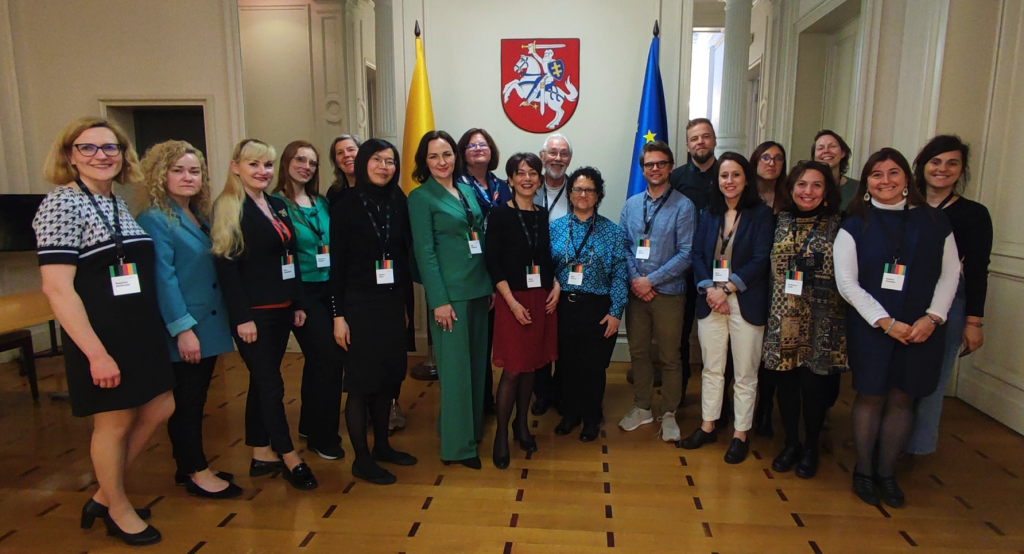
For more information about the FEDORA project and its outcomes, please explore our website; you will find plenty of resources.
The Liceo Scientifico Einstein is carrying out an interdisciplinary curricular activity about the physics of complex systems and creative writing, co-designed by two secondary teachers and inspired by Fedora’s themes and principles. The activity, named Kairos, shares the "same philosophy" of a previous one, “Physics of clouds”: create a space to make students reflect on themselves and on their identities as members of a complex society.
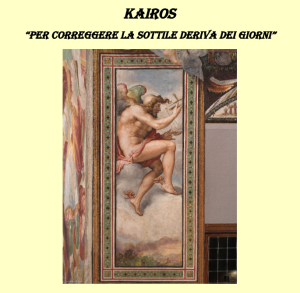
The founding idea and motif of the activity concerns contemporary society, which has been defined by Rosa the “society of acceleration”, since the speed with which the changes take place at different levels (social, economic, cultural, technological...). People are asked to reflect on the continuously evolving relationship between themselves and time, and how an accelerated time affects the ways in which individuals build their own experience. This complex intertwining between time, individuals, and society is the protagonist of the activity. Students are guided to explore time and its complex features as physical and anthropological categories. The complex relationship, which comes to life in an interdisciplinary literature-science context, is populated with meaning coming from the physics of complex systems and from the time conceptions of ancient Greeks (Chronos, Aios, Einautos, Kairos). The science of complex systems provides words and concepts such as uncertainty, unexpected, disorder, contradiction, possible scenarios, the interweaving of individual and collective, changes in spatial and temporal scale, and management of "different times", that can scaffold the thinking and help to better grapple with the “time-features” of contemporary society. Also the Greek conceptions of time shed light on these “time-features” but they also open a reflection on an anthropological perspective: as Seneca wrote - “Tempus tantum nostrum est” - namely our domain on time can be conceived as a capacity for qualitative and non-quantitative choice in relation to time. Hence the title of the project, Kairos: alongside the quantitative time of regular flow (Chronos), the eternal time (Aion), and the circular time (Einautos), there is qualitative time (Kairos) that incorporates a tension between present and future, a “hic et nunc” (here and now) that extends over time without losing the value of the present moment. Kairos embodies the educational purpose of the activity: to know and choose a good time, the ethically appropriate opportunity in a simple flow of individual and social existence together. Students are fostered to reflect and explore the physical and anthropological categories of time and their complexities by writing a collective theatre pièce. The writing is the “place” where the merging of Greek times and science of complexity is realized, with the scaffolding of narrative rules.
Kairos was born from the collaboration between the professors Sara Moresco (Italian literature teacher) and Paola Fantini (retired math and physics teacher), with the help of professor Nicola Ialeggio (in-service physics teacher), Emma Gabellini (responsible for the school chemistry laboratory), Veronica Ilari (master student involved in the FEDORA project), Francesco De Zuani (PhD student involved in the FEDORA project). The teachers chose to use curricular hours of Italian literature (about 50), since they wanted to create dynamics involving all the students and push for the activity to become structural in the next years, even if this brought huge challenges in fitting the Italian curriculum according to the activity.
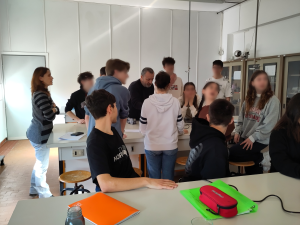
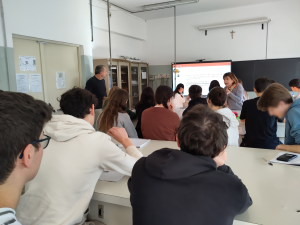
The activity consisted of 4 phases.
In the first one prof. Fantini presented in class examples of complex systems, describing their novel features compared to classical systems, and stressing the idea that society itself can be considered a complex system, so can be looked at through the “lenses” scientists use to address complex systems.
The next phase is composed of two laboratory experiences: i) one within the chemistry laboratory, where Prof. Gabellini showed a chemical oscillatory reaction; ii) one within the physics laboratory where Prof. Ialeggio helped students to reproduce the Bènard cells effect. The aim was to show temporal and spatial structures that were emerging from the microscopic interaction of system agents, a concept discussed previously in class. Some of the ideas at the basis of these two first steps come from the Educational Reconstruction made by Veronica Ilari in collaboration with Francesco De Zuani.
In the third step prof. Fantini and prof. Moresco displayed to students how to connect the physics concepts encountered with the language of writing; specifically, they chose to exploit the four kinds of “time” that ancient Greeks had (Kairòs, Aiòn, Einautòs, Chrònos) since the features which distinguish them are features which emerge in the discourse about complexity (circularity, determinism, emergence…). These features were addressed while writing by using Pirandello’s conception of comic and humorous.
Finally, the students were asked to write a theatre pièce made of 5 acts, each of which was assigned to a group of students. In the writing of the piece, students were asked to respect some constraints including dealing with the management of different temporalities. Professor Moresco is mentoring the writing process, editing the scenes, and also involving the whole class in deciding title, settings, characters, and so on.
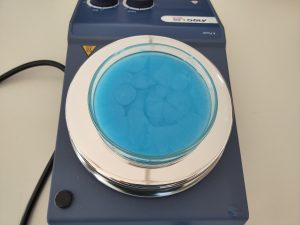 Hence, the objective of Kairos was to construct some lenses from the physics of complexity, by which being able to look at a world that is complex, to see how individuals are agents within a society that has circular causal mechanisms and emergent phenomena, develop ways, by the use of writing, to make sense of the complexity around and develop our identity as agents within that.
Hence, the objective of Kairos was to construct some lenses from the physics of complexity, by which being able to look at a world that is complex, to see how individuals are agents within a society that has circular causal mechanisms and emergent phenomena, develop ways, by the use of writing, to make sense of the complexity around and develop our identity as agents within that.
